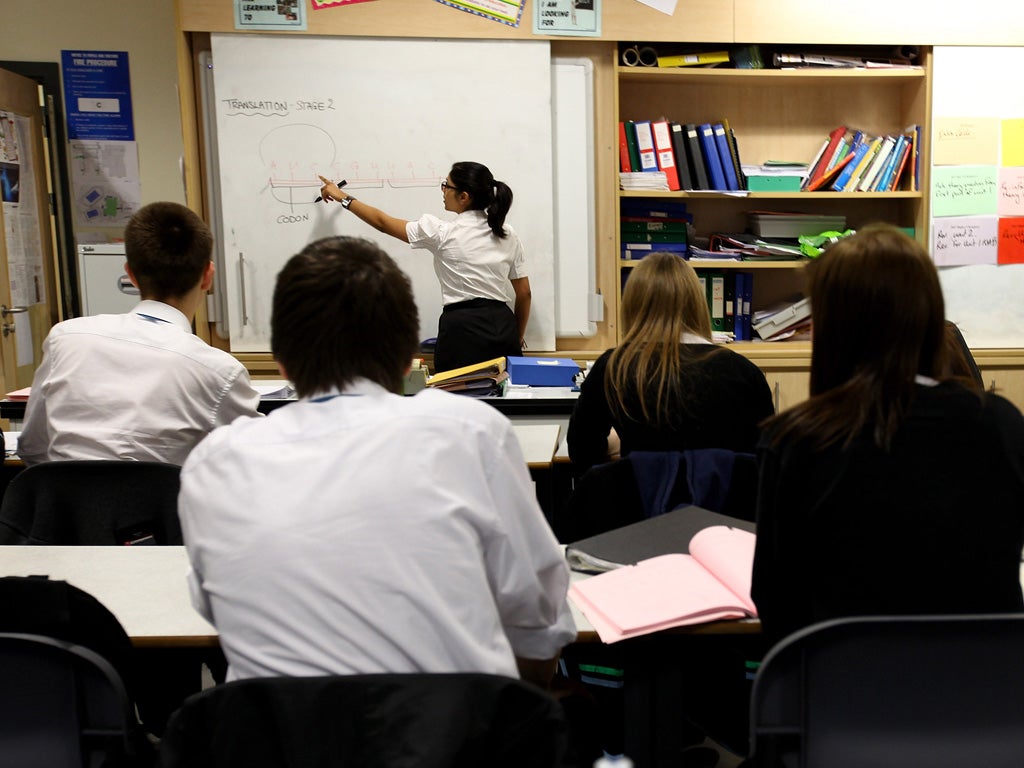Of course some teachers will bump up marks. Coursework puts teachers in a lose-lose position
It’s no surprise that a top academy reportedly 'inflated grades' - teachers are increasingly pressured to get good results

If you put teachers in charge of marking (part of) their student’s examination work and at the same time, tell them that their livelihoods depend upon their getting as many high grades as possible they may be tempted to … err … cheat. Many would.
The whole concept of ‘coursework’ puts teachers in an impossible lose-lose position. It’s like allowing car owners to carry out their own MOT tests and threatening to confiscate their cars if they don’t pass.
So I’m not in the least surprised to hear about Harris Academy Beckenham. It is being investigated by Ofqual, the exams regulator, because 81 per cent of the 78 students who sat GCSE English Language at foundation tier level are said to have passed one of the teacher-assessed parts of the exam with grades A* to C. And 45 per cent got the similar grades in the other teacher assessed bit. Yet, overall, once the externally assessed exams were factored in only four per cent - yes that equates to about three students – reportedly got grades A*-C.
Describing this apparent cavernous gap as a ‘discrepancy’ is something of an understatement.
So why don’t we hear about this sort of thing more often? Because it clearly is not in the interests of teachers and schools to draw attention to it. We know about Harris Academy Beckenham only because an unnamed teacher “who has been close to the school” has reported these claims to Ofqual and gone to the press with his story. Draw your own conclusions about his current relationship with the school … which isstrenuously denying that anything irregular has gone on.
In a way the school is right. Nothing irregular has gone on because this kind of thing happens continually and ubiquitously, as Warwick Mansell proved in his impeccably researched book Education by Numbers: The Tyranny of Testing (2007).
Research by former Ofsted Inspector Birendra Singh, published last month, demonstrated clearly that science teachers are being put under pressure to inflate – or even invent – GCSE coursework marks as a way of massaging their schools’ rankings.
One head of department I knew told staff bluntly to inflate the A level English course work as much as possible to offset the weaker students’ expected poor performance in the written papers.
Teachers were obliged to spend hours helping each student with draft after draft and then at the end of the process (by which time they knew everybody’s work almost by heart and had effectively written chunks of it) to put a high mark on it, whether it deserved it or not. Often, staff were instructed to make it 100 per cent. “If the student has, with your help, fulfilled all the criteria, then it’s full marks” he asserted.
But teachers have bills to pay. There was no way they could have objected openly at the time. No teacher can afford to jeopardise his or her job or the status of the school which employs him or her by downgrading students – much as they may deserve it – given that schools and teachers are judged by “results”. And that means exam passes.
The powers-that-be are aware of all this of course. And there is much less emphasis on coursework – to the fury of many teachers who want their students to pass by fair means or foul - than there used to be. Most of it now has to be written in school under ‘controlled conditions’ so at least it can’t be ghosted by parents or pinched from the internet, but that doesn’t do anything to stop anxious teachers from larding it with undeserved marks.
From next year oral work – the easiest thing of all to mark up generously because there is no evidence afterwards – will be excluded from the final GCSE English grade and that will help.
At least it will in that grades might be a more accurate indication of what candidates actually know, understand and can do.
On the other hand the exam should be a full top at the end of a course and not the concern which drives every single minute of every lesson for two years. Coursework, in the sense of what the student learns and does in class and elsewhere week after week for two years, is about learning and development – and that’s what really matters.
The best coursework leads to the exam but is not part of it. All examination work should be marked objectively by impartial people who do not know the candidates. To do otherwise is to sell our young people short by issuing them with phoney qualifications.

Join our commenting forum
Join thought-provoking conversations, follow other Independent readers and see their replies